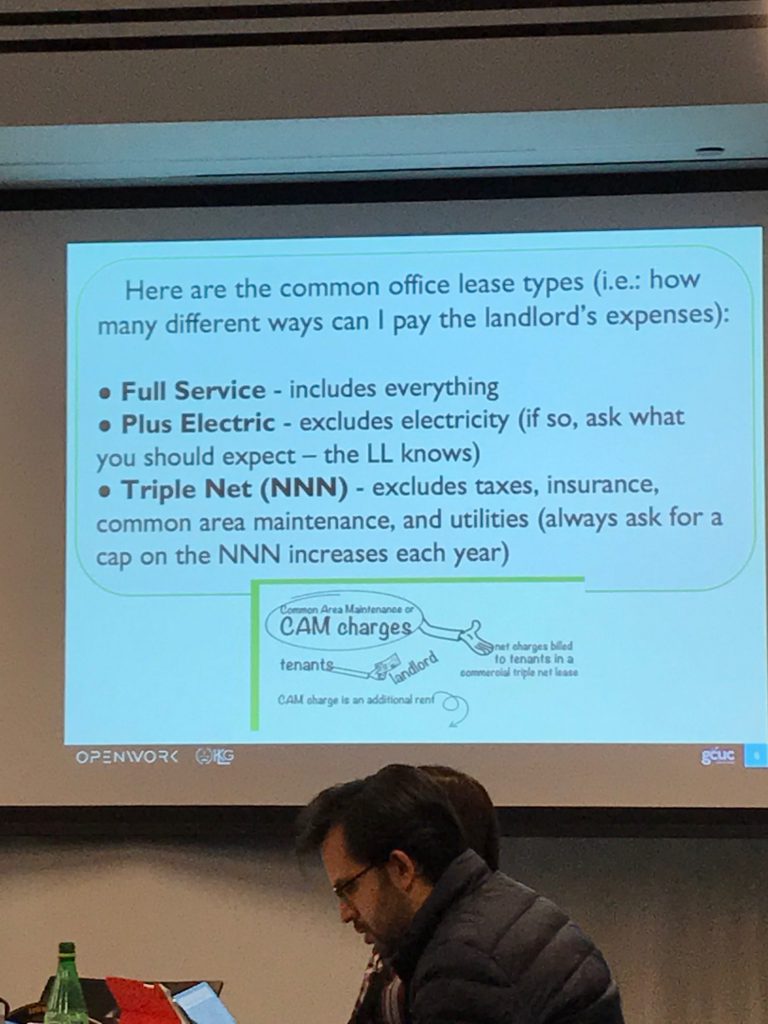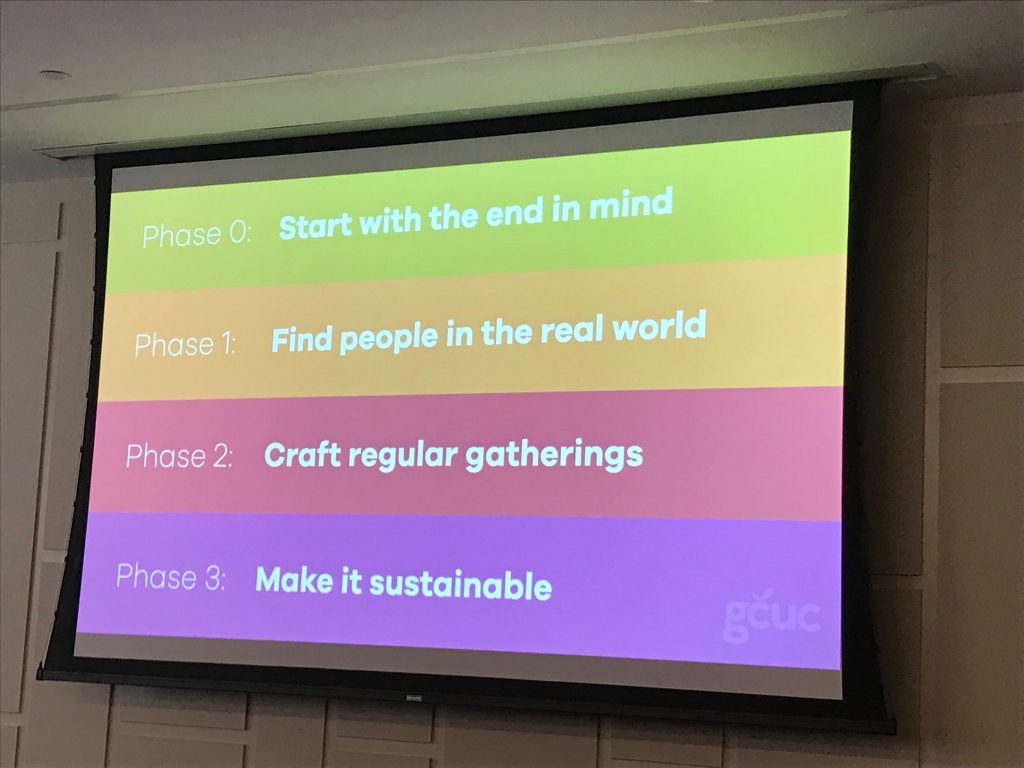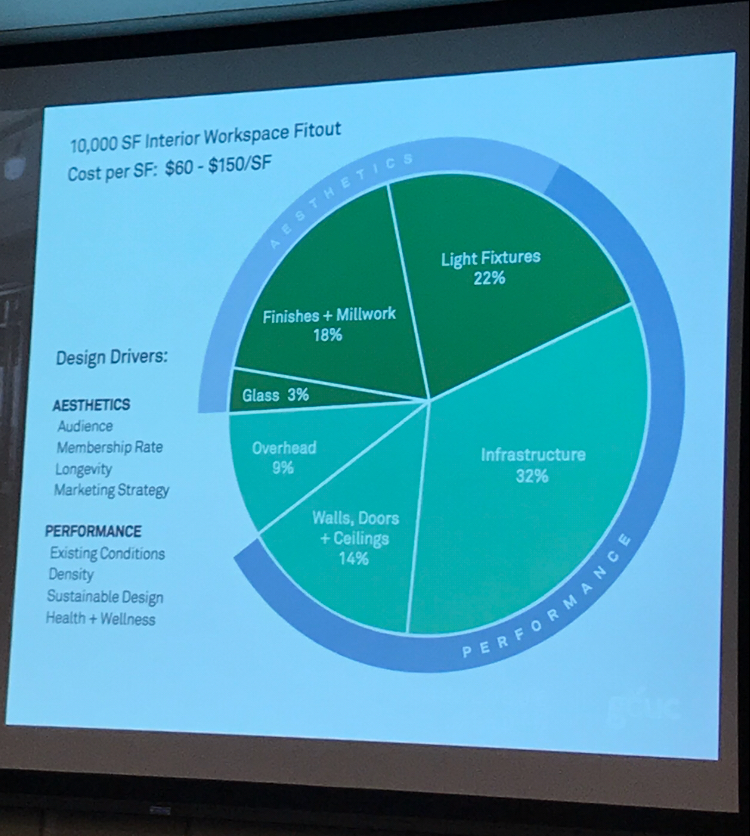Once again, GCUC USA delivered a huge 3 day event full of information, laughs, and love of Coworking. We are proud to have once again been a top tier sponsor of this conference, and we thank everyone who had a chance to stop by our booth. Let’s take a look at some of the biggest takeaways from GCUC 2018, starting with Camp GCUC on Sunday.
Day 1 of the ‘unconference’ was camp day. Billed as the boot camp for new entrants into the shared workspace and Coworking industry, the event is filled with info newcomers will need to succeed in their new venture.
Real Estate and Lease Negotations
It started with a discussion led by attorney Marcy Kammerman and Benjamin Dyett, Partner at OpenWork Agency. They discussed real estate and lease negotiations. One of the main concepts they shared was that today there are more options than a traditional landlord-tenant lease. You can sign a management agreeement, a joint venture, or a revenue sharing agreement.
The speakers primarily focused on leasing concepts. The number 1 leasing rule applies in Coworking as it does in any commercial real estate venture: Location, Location, Location.
Remember that brokers are going to be eager to sign the contract for their own commission, and lawyers expenses will grow by the hour. Just keep in mind that you’re in control. Don’t rush into anything, and keep your best interests first and foremost. Make sure to write your LOI (Letter of Intent) before negotiating a lease. The LOI should include points such as the bid offer, rent, duration, guarantees, and security deposits.
NNN leases (Triple Net) exclude taxes, common area maintenance, utilities, and insurance. They can be complicated, but if you take this route, keep in mind that CAM charges can increase and are difficult to pinpoint. Negotiating a cap on these charges is key. Insurance and real estate costs are typically going to be your biggest expenses.
One important tip the presenters mentioned was negotiating “As is” clause out of your lease. This statement will basically confirm you are accepting the space with its faults in its current condition.
Technology
This discussion was directed by Bill Jacobson, founder of Workbar. When you think technology in Coworking, he stated, make sure you think about your different members. Whether its a small business, larger business, solo entrepreneur, or a 2am worker, technology needs to cater to all members.
Jacobson described the 4 tech phases:
<100 members: ‘Simple’ – You’ll need the core programs such as Paypal, Google Docs, Dropbox, WordPress, Quickbooks, etc. Focus on door access, reservations, analytics, website development.
100-300 members: ‘Specialized’ – meaning you narrow in on more detailed programs such as Paychex, Slack, Meraki, Stripe. It becomes harder at this stage to communicate among members. Focus on billing, CRM, payroll/HR, security, phone rooms.
300-800 members: ‘Integrated’ – Programs such as Zendesk, Papercut, Zapier, Hubspot become vital to your space’s success. You’ll need to maximize technology such as digital displays, reception, messaging, video conferencing, storage, ACH payment. Event hosting becomes very important at this stage.
800+ members: ‘Customization’ – At this stage, you’ll want to make sure you have a comprehensive mobile app, and enhance your reporting, physical/digital displays, personalization.
Community
We’ve talked about community and its importance in our industry. Ashley Proctor of GCUC Canada, and 312 Main in Vancouver, took the stage alongside Tony Bacigalupo, founder of New Work Cities.
They stressed the human element of Coworking. Make sure you are in touch with your members, their needs and what they value in the space. They spoke about the stages of building community:
Phase 0 – Don’t wait until your doors are open to start building community! Promote your space, describe the values you’ll hone in on, and do it early enough where there’s time for anticipation to build.
Phase 1 – Talk to people! You have an inner circle of friends/family. They know people as well. Spread the word. Reach out to existing contacts, and other communities in the area. Use a simple two sentence trick: ‘I’m gathering people at this place at this time. Would you like to join?’
Remember collaboration > competition. Its important to discuss what you don’t know and ask questions. People who do know the answers will help you. Talk to places that are thriving for advice.
Phase 2 – Create the gatherings that your community will thrive on. Ashley described two of her most successful events: a community potluck on the last Friday of every month. and a weekly show and tell on Friday afternoons where members can present any projects they’re working on.
Phase 3 – Make this sustainable by establishing a seasonal rhythm. If you know you’re going to be slower in July and August, focus more on January and September events for biggest draw. Use your space anniversary as a reason to celebrate or share a meal together. You could do a townhall every half year, for example.
Design
In the last session of the day, Vince Pan, founder of Analogue Studio, talked about how to make your space ‘Instagrammable’. To make your space the most aesthetically pleasing as well as comfortable, you’ll need to address three points:
Define your tribe: How many private offices do you need to offer? What types of events do you want to host?
Define your scope (money and time): How much money do you have? How much of that can be allocated toward design?
Define your space: Select a space and its design features. How much of your space is rentable and how much of it is usable square feet? Key factors include windows, proximity to elevators and stairs, and bathrooms.
Consider how much of your space will be communal tables as opposed to individual desks. There are pros and cons to having more of one or the other! Common areas/tables build community, but dedicated desks are usually your big money makers.
Consider refreshing your design every 5 years if you’re in a long term lease. Make sure you have walking space, as people circulating around the office creates positivity and community.
That’s about it for Camp GCUC 2018! This was just the first part of the 3 day event, so stay tuned for the recap of days 2 and 3!



